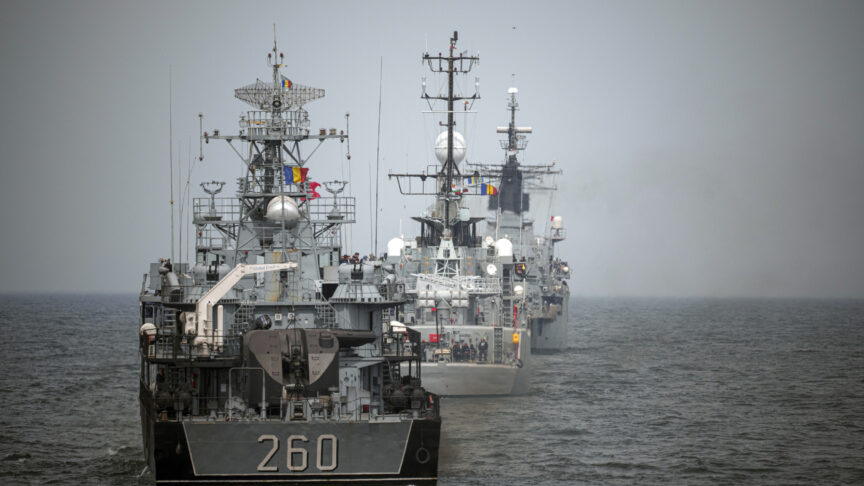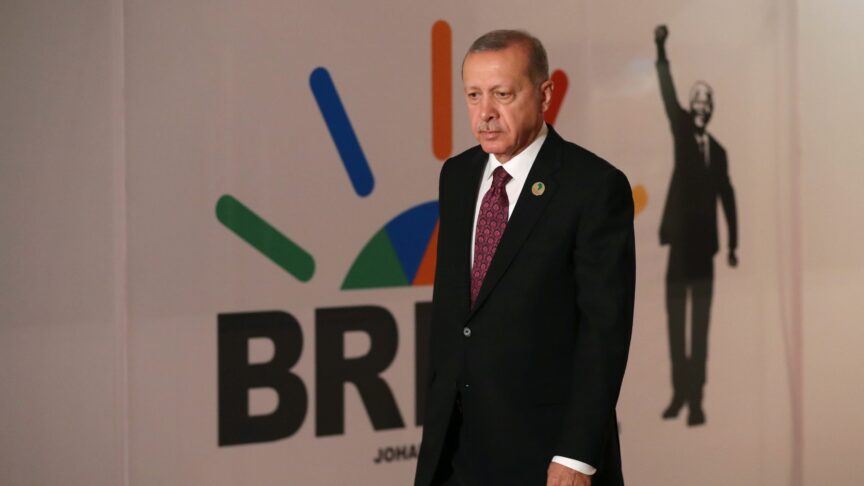Winning the peace in Georgia
The EU’s frenetic diplomacy around the conflict is in stark contrast with its reluctance to engage just a few months ago
This article also appeared on EU Observer.
The European Union’s frenetic diplomacy around Georgia’s war with Russia is in stark contrast with its reluctance to engage just a few months ago. After years of blockage, delays and hesitation the EU will have to act. The question is how to get it right this time?
After the launch of the European Neighbourhood Policy in 2003 the EU made all the right noises about its potential contribution to conflict resolution in the South Caucasus. The EU appointed an EU Special Representative (in 2002), launched a rule of law mission to Tbilisi in 2004, deployed a twelve-person EU border support team and significantly increased its financial contribution to the rehabilitation of the conflict zones in Abkhazia and South Ossetia. Since 2006 the EU has been the biggest international donor to the conflict regions (not counting Russia’s non-transparent assistance). The EU has financed civil society, the reconstruction of schools, hospitals, electricity generation and water sewage systems in the conflict zones.
But the EU has performed less well on the political issues. In a constantly degenerating security environment of increasing tension between Russia and Georgia, the long-term focus of the European neighbourhood policy has been increasingly out of touch with the pressing realities on the ground. The EU has found it hard to muster the political will to even ask Russia some tough questions about its role in Abkhazia and South Ossetia, let alone push the transformation of the negotiations formats and the peacekeeping operations in the region. The OSCE’s five military observers in Tskhinvali were regularly reporting persistent breaches of the security regime in South Ossetia and excessive militarisation of the region, but such reports have rarely been taken off their shelves in the OSCE headquarters in Vienna. The EU never had the political will to discuss the topic with Russia other than pro-forma.
In 2005 Russia terminated a 150-person strong OSCE Border Monitoring Mission on the Russian-Georgian border, and Georgia invited the EU to take over. The EU response was to send three persons (later extended to twelve) to help Georgia reform its border management system. In January 2007 the EU sent a fact-finding mission to the conflict region that suggested a number of small steps for EU engagement in the conflict zones. These included relatively uncontroversial proposals such as offering greater support and financing for civil society and youth support in Abkhazia and South Ossetia and greater support for institution-building in Georgia’s customs service; the opening of European Information Centres in Abkhazia and South Ossetia; the appointment of two EU police officers to work with the secessionist authorities; and the possibility for two EU border experts to develop a dialogue on border-control issues in Abkhazia and South Ossetia.
However minimalist, even such measures have had to be dragged through EU decision-making mechanisms, blocked and delayed by a minority (sometimes only one) of Russia-friendly member states. As the EU was debating sending two more persons on the ground, Russia was introducing hundreds of armed ‘peace-keepers’ into Abkhazia. Worse, in response to frequent visits by Georgian ministers to Brussels demanding a greater EU role in conflict settlement, many in the EU have developed a “Georgia fatigue”. Georgia itself developed a sense of disappointment with Brussels: the EU’s offers of deep free trade and visa facilitation were not very attractive, and the EU’s reluctance to engage encouraged unilateral action.
It is now time for the EU to relearn one of the central lessons of the Balkan wars: that the best way to keep the peace is to get involved, rather than standing on the sidelines. The EU now needs to rescue what it can from a terrible situation. The EU has already become Russia’s main negotiator for the post-conflict arrangements. Now is the time to reform the dysfunctional peace support arrangements that enabled the conflict, i.e. the supposedly ‘trilateral’ Georgian-Russian-North-Ossetian joint peacekeeping force supervised by a Joint Constitutional Commission where Georgia was de facto completely outnumbered by South Ossetia, North Ossetia and Russia. The EU now has three options.
- The first is to offer greater support the OSCE and the UN in South Ossetia and Abkhazia by providing additional monitors.
- Second, the EU could send armed peacekeepers. But either of these options would fall into a double dependence on Russia, requiring approval in the UN Security Council, and Russian cooperation on the ground. EU peacekeeping from a position of weakness might end up conferring greater legitimacy on Russian forces on the ground, while contributing little to any political settlement (like the UN peacekeepers in Cyprus).
- The third, and the most desirable option for the EU is to deploy a comprehensive EU Reconstruction Mission covering humanitarian, reconstruction and political aspects. Its functions would include monitoring the security situation and the peacekeeping operation, but also dealing with return of internally displaced persons, conflict-mediation, confidence-building measures, and disarmament, demobilization, and the reintegration of former combatants. Such a mission would come in response to Georgia’s invitation, and would not need UN approval.
- The EU should also set up a Contact Group that would meet every six months at Ministers’ level, with monthly meetings for their Political Directors, to oversee the progress of the peace plan and discuss issues that may impede implementation.
The EU has taken the lead in finding an immediate cease-fire solution. But without longer-term engagement in the South Caucasus violent solutions to territorial problems might remain the default solution for years, if not decades to come.
The European Council on Foreign Relations does not take collective positions. ECFR publications only represent the views of their individual authors.


